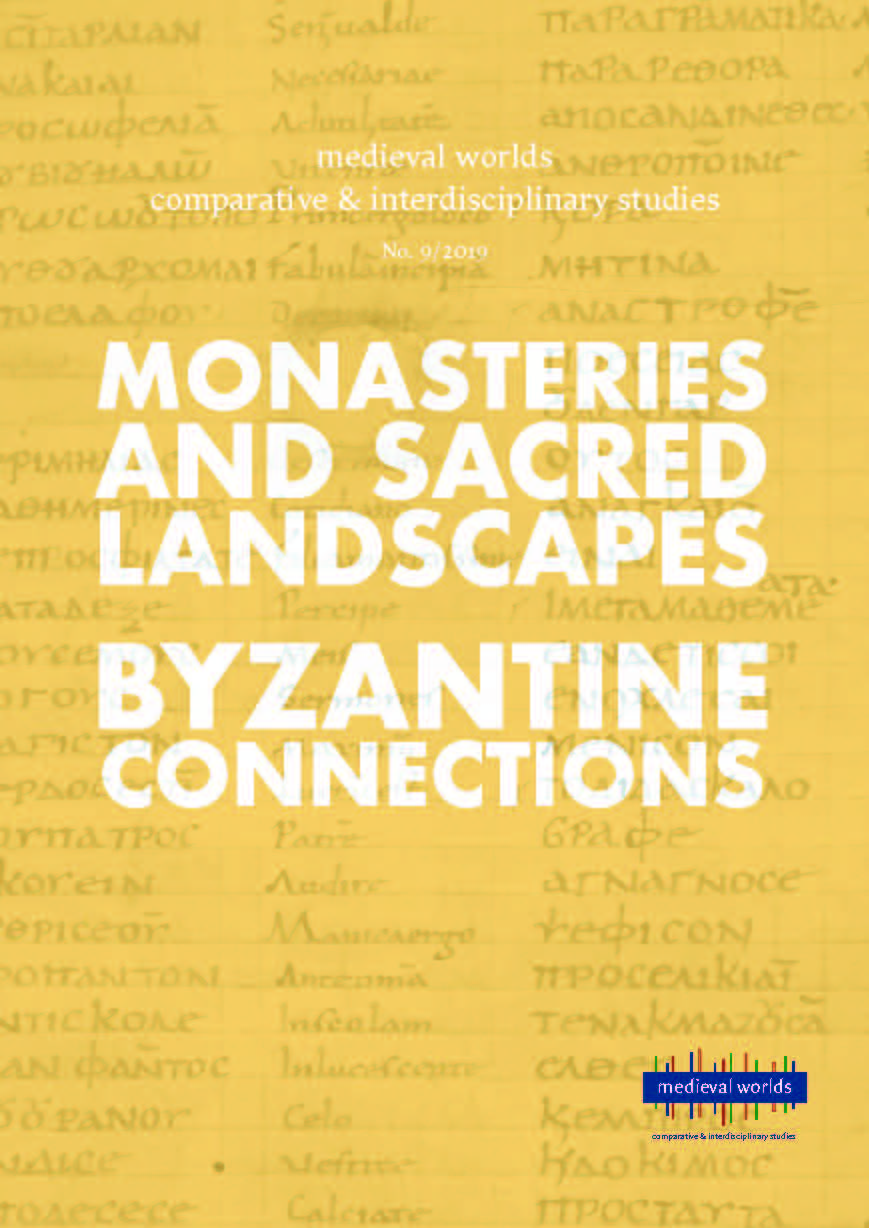Albrecht Diem
S. 112 - 138
doi:
10.1553/medievalworlds_no9_2019s112
Verlag der Österreichischen Akademie der Wissenschaften
doi:
10.1553/medievalworlds_no9_2019s112
Abstract:
This article discusses the limitations and advantages of using ›asceticism‹ as a universal category and as a hermeneutic tool in the study of late antique religious life and comparative studies of religious communities. It first explores the roots and the history of the terms ›asceticism‹, ›Askese‹ and ›ascétisme‹ arguing that they originate from early modern scholarly traditions rather than being based on the language of late antique and early medieval Christian texts. A second part traces the origins of the term askēsis in Greek monastic discourse, using the Vita Antonii, the Historia Lausiaca, Theodoret’s Historia religiosa and the Greek and Latin versions of the Vita Pachomii as case studies. I argue that Athanasius of Alexandria’s decision to use askēsis as a key term of his monastic program was motivated by limiting the range of appropriate religious practices rather than praising what we might call radical asceticism. Askēsis took on a life of its own and attained various meanings in Greek monastic texts but never found an equivalent in Latin monastic language. The third part describes the diversification of ›ascetic‹ practices and ideals in a number of Latin hagiographic and normative texts. I question to what extent it makes sense to consider religious practices emerging in the West (following a rule, unconditional obedience, humility, enclosure, sexual abstinence, liturgical discipline, etc.) as forms of Western ›asceticism‹ and argue that using ›asceticism‹ uncritically carries the danger of obfuscating nuances, diversity and transformations of religious practices in the Latin (but also in the Greek) world of Late Antiquity and the early Middle Ages.
asceticism, hagiography, monastic rules, humanist scholarship, Athanasius, Theorodet of Cyrrus, Antony (the desert father), Palladius, late antique and early medieval monasticism
Published Online:
2019/06/28 10:44:09
Document Date:
2019/06/28 10:36:00
Object Identifier:
0xc1aa5576 0x003abd5b
Rights:All rights reserved.For questions regarding copyright and copies please contact us by email.
medieval worlds provides a forum for comparative, interdisciplinary and transcultural studies of the Middle Ages. Its aim is to overcome disciplinary boundaries, regional limits and national research traditions in Medieval Studies, to open up new spaces for discussion, and to help developing global perspectives. We focus on the period from c. 400 to 1500 CE but do not stick to rigid periodization.
medieval worlds is open to submissions of broadly comparative studies and matters of global interest, whether in single articles, companion papers, smaller clusters, or special issues on a subject of global/comparative history. We particularly invite studies of wide-ranging connectivity or comparison between different world regions.
Apart from research articles, medieval worlds publishes ongoing debates and project and conference reports on comparative medieval research.
Table of Contents
Editor’s Preface
Walter Pohl and Ingrid Hartl
Monasteries and Sacred Landscapes
An Old Ritual Capital, a New Ritual Landscape:
Understanding the Transformation of Angkor Thom, Cambodia:
through the Construction and Placement of Theravāda »Buddhist Terraces«:
Andrew Harris
The Monasteries of Athos and Chalkidiki (8th-11th Centuries): A Pioneering Front?
Michel Kaplan
Pro qualitate loci et instantia laboris:
Monasteries and their Human and Natural Environments in Late Antique Gaul
Matheus Coutinho Figuinha
The Limitations of Asceticism
Albrecht Diem
Byzantine Connections
Greeks and »Greek« Writers in the Early Medieval Italian Papyri
Edward M. Schoolman
Resenting Byzantine Iconoclasm. Its Early Reception in Italy
through an Inscription from Corteolona
Francesca Dell’Acqua and Clemens Gantner
Mercantile and Religious Mobility between Byzantines, Latins and Muslims,
1200-1500: On the Theory and Practice of Social Networks
Johannes Preiser-Kapeller and Ekaterini Mitsiou
»A Universal Narrative of Humanity«. Travelling to the ›Other‹
from Constantinople: Priscus of Panion (5th c. CE)
and William of Rubruk (13th c. CE)
Pia Carolla




 Home
Home Print
Print
 References
References
 Share
Share
